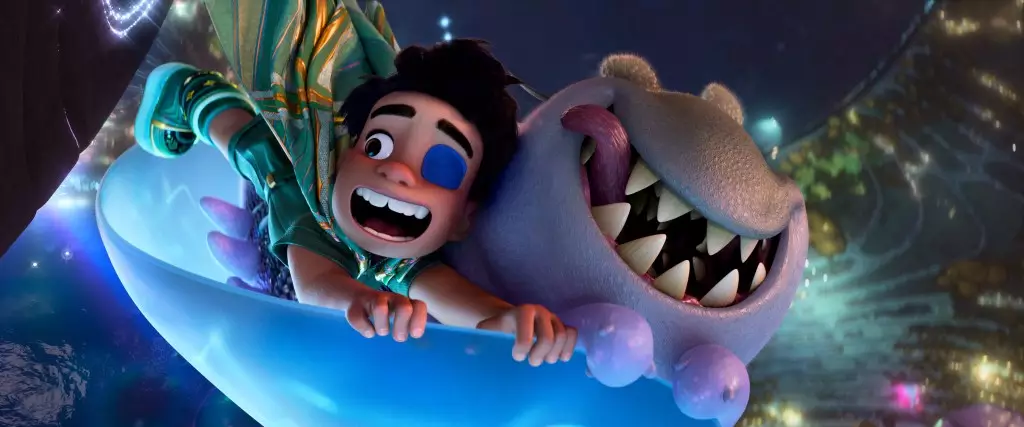Pixar’s latest release, *Elio*, faced a shockingly dismal opening weekend, generating just $21 million—marking the worst box office performance for any film in the studio’s history. Despite receiving a respectable 84% on Rotten Tomatoes, which generally signifies a successful film, *Elio* has become emblematic of the broader struggles facing original animated features. Wall Street analyst Doug Creutz identifies an alarming disparity between original content and sequels, arguing that the effects of the pandemic have exacerbated this divide. It raises a critical question: are audiences losing interest in brand-new stories?
A Trend in Animation: Sequels vs. Original IP
The gap Creutz describes is not only a trend; it’s symptomatic of a cultural shift. Audiences are flocking to familiar characters and well-established franchises, and as a result, studios are leaning heavily toward sequels and derivative properties. For Pixar, which prides itself on innovation and story-telling, this narrowing field may be problematic. Each new original release creates an opportunity for fresh narratives, yet when their performance dwindles, executives are likely to pivot toward safer sequels that guarantee box office returns. The cycle of repeating successes does little to cultivate new storytelling landscapes, leaving a generation of potential cinematic gems in the dust.
Investor Sentiment and Stock Market Reactions
The cold reception of *Elio* sent nervous ripples through Disney’s stock market performance, with shares initially dropping by 2%. Although they stabilized by the closing of the trading day, the volatility illustrates a growing concern among investors about the future of Disney’s creative endeavors. The failures of original films have ramifications beyond just immediate box office figures; they can disrupt the entire ecosystem that propels Disney’s parks and consumer merchandise. Without fresh IPs, the chain reaction could starve magical experiences at theme parks who thrive on innovative narratives.
The Future of Animation: What Lies Ahead?
With the pivot back to sequels, iconic franchises such as *Toy Story* and *Moana* are set to dominate the animation landscape, but as Dennis Spiegel, industry consultant, points out, these properties alone cannot sustain the creative pipeline in Disney’s ecosystem. The success of a franchise does not automatically translate to new attractions or experiences in parks, which rely on original storytelling to entertain guests. *Elio* may serve as a warning that complacency could hinder the expansion of IP, raising doubts about the longevity of beloved brands if originality is not nurtured.
The Call for Balance in Animation
It is crucial for studios to strike a balance between harnessing the nostalgic power of sequels and investing in groundbreaking original ideas. If the industry does not support creativity, audiences could find themselves in a loop of never-ending retreads, which might dampen the excitement for animated cinema altogether. The response to *Elio* should not be to retreat into the safety of familiar stories but rather to revitalize the interest in original concepts that have the potential to resonate with both children and adults alike. As the movie landscape evolves, will Pixar pivot to embrace this challenge, or will it continue to let nostalgia dictate its path?

